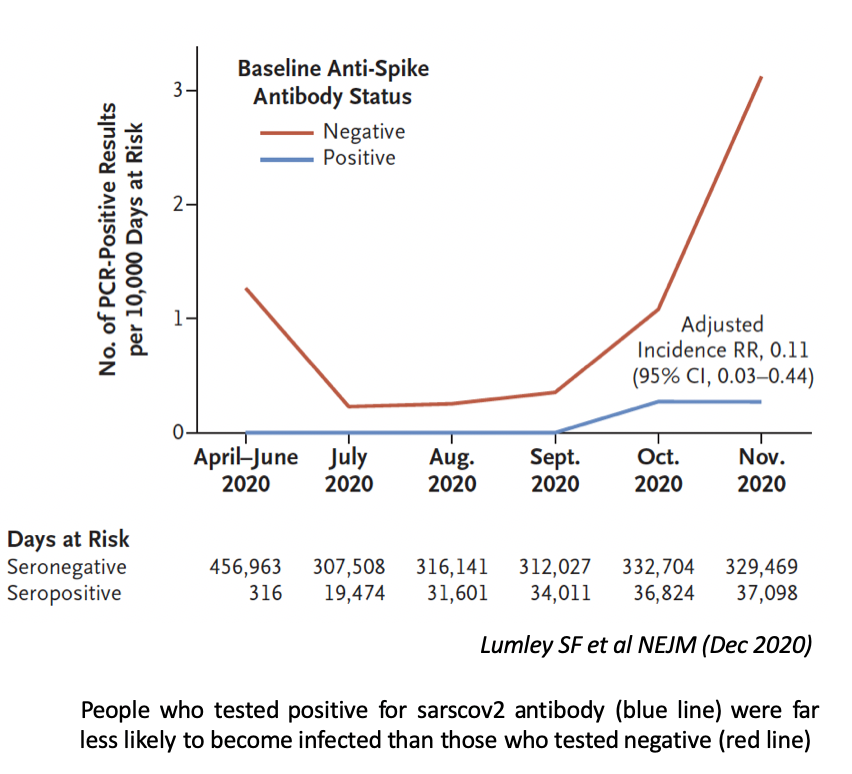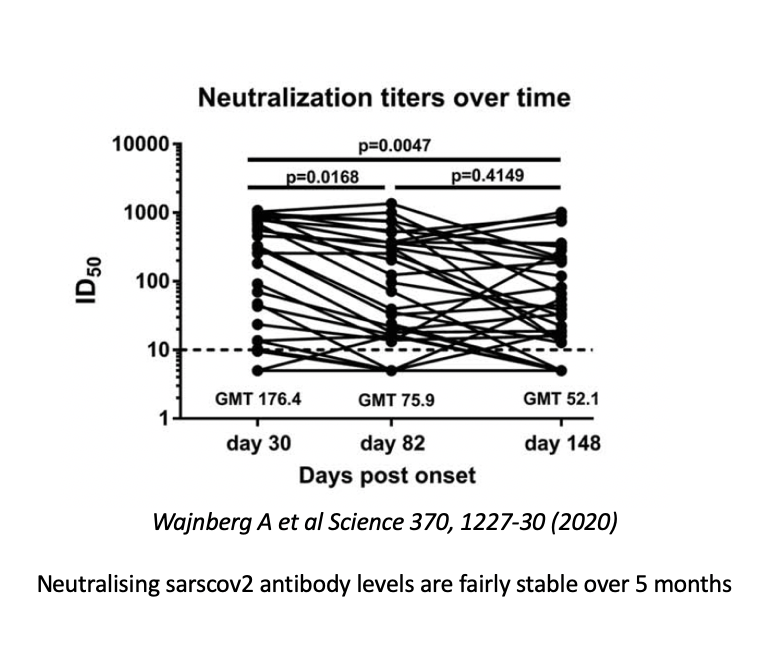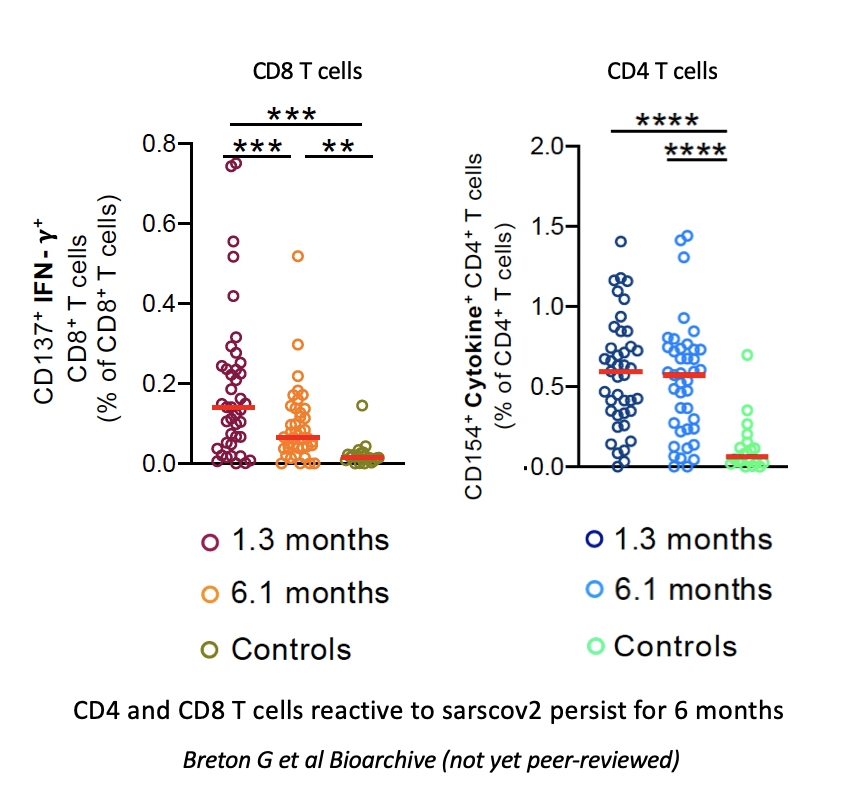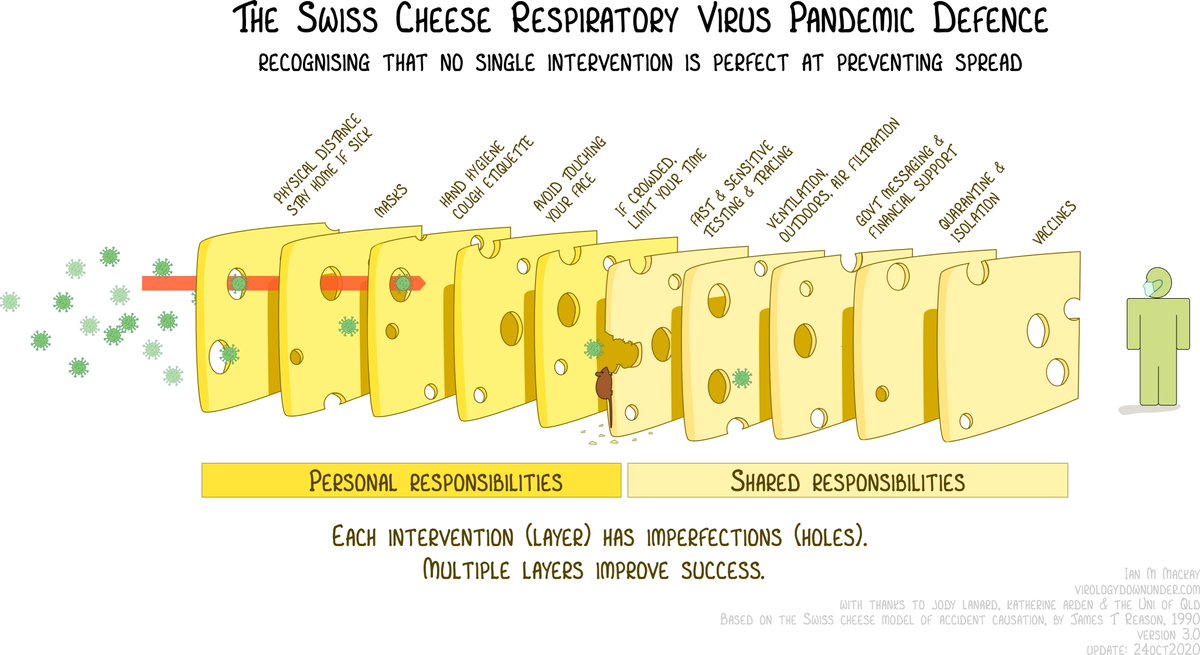At the start of the pandemic it was unclear whether infection with the novel coronavirus ( #SARSCoV2) would lead to protective immunity, how long immunity would last, whether vaccines could be made, and the implications of viral mutation. What have we since learnt? A thread 1/
The immune response to #SARSCoV2 infection is strong, even in people who don’t show symptoms. Infection leads to “immune memory” – meaning that there is a larger and faster response to re-challenge. This is important since it’s what allows vaccination to work as a strategy. 2/
The innate immune response (triggered early) is important for viral control. Rare individuals who have problems with the production or activity of the soluble factors involved in innate immunity can develop severe #COVID19. 3/
The adaptive immune response (which takes longer & involves T cells and B cells) is very effectively activated after #SARSCoV2 infection. Nearly everyone makes a strong antibody response. T cell responses to the virus can also be detected in the majority of infected people. 4/
The immune response appears to protect from re-infection. This can be shown by comparing infection rates in people who test positive for #SARSCoV2 antibodies versus those that don’t. Re-infections are likely to be fairly infrequent and involve milder symptoms. 5/
Despite initial concerns, the immune response appears to be reasonably long-lasting. Antibody levels remain stable for at least 5 months and memory B cells are formed that can provide long-term recall capacity. 6/
Likewise, the T cell response to #SARSCoV2 appears to be only slightly decreased 6 months post infection. 7/
If immunity had been very transient, it would be difficult to end the pandemic through vaccination. This is because vaccination mimics exposure to the virus, allowing an immune response to be mounted without the dangers associated with infection. 8/
If vaccine-induced immunity is at least as good as that induced by natural infection (a reasonable expectation) the situation should be vaccine-controllable, perhaps with a need for booster jabs every few years. 9/
Severe #COVID19 disease appears to be due to dysregulation of the immune response. Failure to bring the virus under control rapidly can lead to prolonged inflammation and widespread organ damage. 10/
Age is a major risk factor for severe #COVID19. As people get older, innate & adaptive immunity becomes less effective. Background levels of inflammation also rise (known as inflammaging). This may make it harder to clear virus rapidly without triggering damaging inflammation.11/
#COVID19 vaccines are the breakthrough of 2020. Unprecedented amounts of efficacy and safety data have been obtained in record time. The vaccines look to be working very well, providing high levels of protection. 12/
So the good news is that the virus triggers robust immune responses and these can be mimicked by vaccines. These immune responses are very effective at stopping people getting sick. They will probably make people less able to pass the virus on, but we don’t know this yet. 13/
The bad news is that the virus is mutating faster than expected. The variant identified in the UK doesn’t seem to induce worse disease, but it does spread more rapidly. As @AdamJKucharski points out, this is a big problem 14/ https://twitter.com/AdamJKucharski/status/1343567425107881986
The new variant probably isn’t different enough to escape the immune response. But its rapid spread means a bigger reservoir of replicating virus & a higher chance of further mutation. There is a danger that other mutations that make our vaccines less effective could arise. 15/
It is therefore crucial to cut viral transmission as much as possible as the vaccines are rolled out. Since you can be infectious before you get symptoms, this means behaving as though you have the virus even if you feel well (as illustrated by @MackayIM) 16/
Vaccines give us the tools we need to build population immunity without the deaths and long-term health problems associated with natural infection. But it’s now a race against the clock – we need to decrease case numbers or we risk rendering our vaccines useless 17/
Developing medicines that harness the immune response requires hard work, funding and luck. Incredible effort has gone into the development of #COVID19 vaccines. To benefit from this effort, we now need to maximally reduce viral prevalence and vaccinate as fast as possible 18/

 Read on Twitter
Read on Twitter





